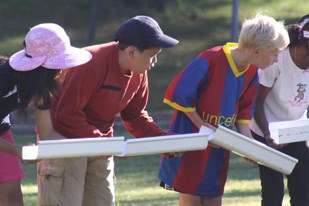Curriculum
At RPS we follow the New Zealand National Curriculum and endeavour to integrate student learning to make more meaningful connections wherever possible. The eight learning areas of the New Zealand Curriculum are; English, The Arts, Health and Physical Education, Learning Languages, Mathematics and Statistics, Science, Social Science and Digital Technology.
Literacy
Literacy is seen as being vitally important at RPS. Literacy includes reading, writing and oral language. The school has strict guidelines for teachers outlining the frequency of literacy lessons and their structure. Professional development for teachers in this area is given a high priority.
During the early years of school, children need to learn to read and write. The initial focus when children begin school is to learn letter names and sounds and to build a bank of known words. Children also need to develop a variety of strategies that they can use to read or spell an unknown word. They need to develop an understanding of how print works, including basic concepts such as directionality of print. Children also need to learn how to gain understanding from a text that they have read.
As children develop, the focus turns instead to, learning through reading and writing. Children are encouraged to use inferential and evaluative skills to think in depth about the text that they are reading or writing. The students will read and create texts for different audiences and purposes, and that use a variety of structures.
With a large variance in reading and writing abilities within any class, teaching in literacy is done in small groups to meet the needs of individuals. Progress of children is continually tracked and their next steps identified.
At RPS we believe that:
- Children need to be effective communicators to be successful participants in NZ society. Success in literacy underpins success across the other curriculum areas.
- Strong oral language skills are vital to success in reading and writing.
- Making meaning through reading and creating meaning through writing are important skills to develop. If a child doesn't understand what they have read, they have not read successfully.
- Students' enthusiasm and motivation for literacy are often good indicators of future progress. Children need to be actively engaged. The importance of consistent support at home with readers and spelling homework can't be overemphasised.
If you have any queries about Literacy at Remuera Primary School, please contact Lindsey Mackrill - Deputy Principal.
Mathematics
As it is one of the three core subjects, effective teaching in Mathematics is a priority at Remuera Primary School. Our commitment to working with children to progress their mathematical thinking is underpinned by the following principles:
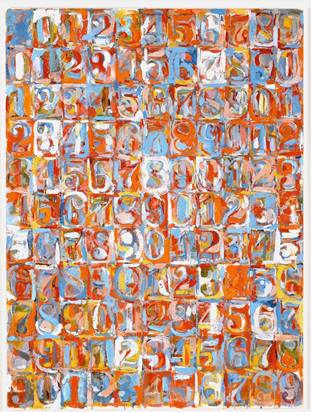 We acknowledge that all students have the capacity to become powerful mathematical learners.
We acknowledge that all students have the capacity to become powerful mathematical learners.- We understand that student development is a process that is optimised through explicit and structured teaching in a stimulating and well-resourced environment.
- We believe in tailoring our programmes to meet the needs of our students, with an appropriate degree of challenge to match capabilities at each level.
- We make a conscious effort to embrace tools and technologies that enable children to reach their potential.
Class programmes are structured and well resourced, with teachers setting clear targets and monitoring children's performance as they strive to meet them. Students are also involved in setting their own goals in this subject. Numeracy progressions are based on the structures outlined in the Ministry of Education's Numeracy Project books.
Remuera Primary is a Mathletics school, meaning that we use the web-based Mathletics programme to support and enhance our children's learning in mathematics. All children are given an access password on enrolment and teachers tailor the programme to meet students' needs. The programme is fun and challenging, with an emphasis on teaching the children basic numeracy skills and developing content knowledge in mathematics 'strands' such as geometry and measurement.
If you have any queries about Mathematics at Remuera Primary School, please contact Lindsey Mackrill - Deputy Principal.
Gifted And Talented Education (GaTE)
We aim to challenge our high performing students and provide a range of opportunities for them to express their gifts and talents. On top of in-class grouping and differentiation to cater for the range of needs and abilities, we have the following enrichment groups running outside the classroom for Year 3 to 6 students: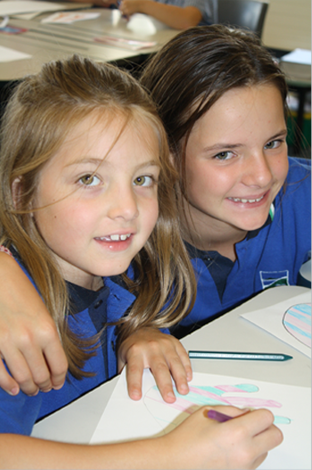
GATE Writing
In GATE Writing students have the chance to hone their writing skills in a supportive and stimulating environment.
Seminar Days
These cross curricular days are run throughout the year for selected groups of 12-15 students. Seminar Days in the past have explored cooking, photography, the language of Shakespeare, French language, journalism and stop motion animation.
Selection for the groups carried out by teachers is broadly based on the following criteria.
- High Level Task Commitment
- Creative Thinking Skills
- High Level Academic Achievement
ICAS Examinations
ICAS Examinations at Remuera Primary School
What are ICAS Examinations?
ICAS Examinations are multi-choice assessments in a range of subjects overseen by Educational Assessment Australia (EAA), a not-for-profit provider of education, training and advisory owned by the University of New South Wales. Although Australia-based, these examinations have become popular in New Zealand in the past decade due to the EAA's commitment to excellence and endeavour to provide a wealth of information for teachers, parents and schools.
Taking part in the ICAS Examinations is optional at Remuera Primary School. Year 4 to 6 students are given the option of sitting three examinations (Science, Mathematics and English) as a package. Students in GATE Writing are also given the option of sitting the ICAS Writing Examination. Examinations take place on specific dates in Terms Two and Three.
There is a cost to parents for taking part and registration forms are sent out each year, early in Term One.
Why do we take part in the ICAS Examinations?
While these examinations are not based on the New Zealand Curriculum, and drawing comparisons between results on an ICAS assessment and those on a New Zealand Curriculum assessment is not always appropriate, the examinations do offer the following benefits.
- Individual student results papers are accessible to parents and teachers. These contain detailed diagnostic data allowing an analysis of strengths and weaknesses in a given subject
- Taking part gives students experience in sitting large scale examinations and practising test-sitting skills such as time management and 'the process of elimination'
- The structured certification gives the students something to aspire to in terms of their scores
- Results show the students' relative position in the New Zealand test population
- The children receive a full colour test booklet and individual results can be accessed online by using a password
Certification
All students who take part in the examinations are given one of the following awards for each subject, depending on how well they perform.
High Distinction (the top 1% of participants)
Distinction (the next 10% of participants)
Credit (the next 25% of participants)
Merit (the next 10% of participants)
Participation (for all remaining participants)
Students with the top score in NZ in each subject will also receive a winner's medal and invitation to a special presentation ceremony.
For further information on ICAS Examinations, visit www.eaa.unsw.edu.au/icas/about
Learning Support
We aim to support our students who are struggling to make satisfactory progress. Children who require support are catered for by a group of highly committed staff including the Special Needs Coordinator (SENCO), the Deputy Principals, support teachers across the school and teacher aides. We also utilise the expertise of outside specialists on a regular basis.
For those children who require it, we timetable regular IEP meetings (Individual Education Plan). The team involved in supporting the child will discuss how the child is going, what their next steps are, and how those goals can be achieved.
At RPS we run a variety of support programmes to assist these children. If your child is part of any of these programmes you will be notified by email.
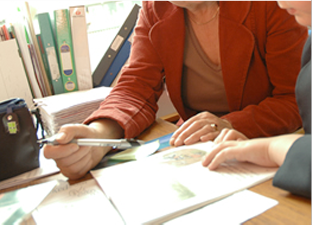 Enriched Learning Groups
Enriched Learning Groups
Our Deputy Principals work with small groups of children in one of the core subjects, providing additional support to that which the children receive in class.
If you are have any questions about any aspect of learning support contact one of the Deputy Principals: Lindsey Mackrill - Junior School, Kate Seales - Middle School, or Mark Hassall - Senior School
The Library
Our library is a welcoming, comfortable, lively and cheerful place within our school. It is a place to read, do puzzles, finish homework, research topics and discuss books and what we are reading.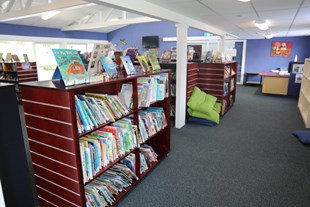
There are current topic displays to support classroom learning. The school librarian works alongside students and teachers, helping them to access relevant and challenging books.
We encourage every student to have a sense of ownership and belonging in our library space - everyone is welcome.
ICT - Information and Communication Technology
Information and Communication Technology is very important to our learning platform at Remuera Primary School.
In recent years we have made a strategic move to invest more in handheld technology. Students now use iPads and Chromebooks to access information via the school's wireless network.
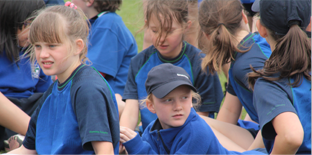 Sport Remuera
Sport Remuera
This is a school committee made up of parents and a lead teacher that organises a variety of sports for children to take part in outside the school hours. Children are able to choose from a range of sports including soccer, netball, hockey, touch rugby and flippa-ball. Notices are sent home via the School newsletter regarding registration and cost.
Afterschool Activities
Afterschool activities are offered throughout the year. Please contact the school office for further details.
Education Outside The Classroom (EOTC)
Class trips and camps play an important part in the school programme. Consent forms are always included when you are notified of an out of school activity. It is important that these are signed and returned to the school. Safety is paramount when it comes to EOTC and parents are always needed to help with trips and camps. Please be generous with your time if possible.
The Vulnerable Children's Act requires that all parents who stay overnight must be police checked. Please contact the school office for a "Police Check" application form.
Currently we have a one night Year 4 Sleepover at Kelly Tarlton's Sealife Aquarium in Term 2. A one night Year 5 camp and a three night Year 6 camp, both held in the first term.

